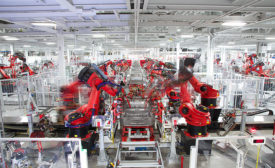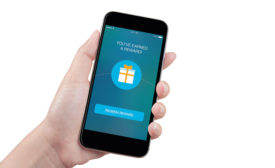Home » Keywords: » safety incentive programs
Items Tagged with 'safety incentive programs'
ARTICLES
Training Strategies
Smart Rewards: Be strategic about your use of safety incentives
October 1, 2019
Tesla denies accusations of hiding injuries
In industry, the motivations are many to under-report
December 12, 2018
Five tips for providing effective safety training
Get your people in “The Zone”
November 2, 2018
Be very specific about the aims and design of your incentive programs
Rewarding Safety
June 11, 2018
The right employee incentive: recognition, cash or promotion?
Find the sweet spot
May 22, 2018
Carlton One Engagement names Dave Peer to company board
Currently VP of Strategy, 20-year incentive industry veteran
January 22, 2018
Become a Leader in Safety Culture
Build your knowledge with ISHN, covering key safety, health and industrial hygiene news, products, and trends.
JOIN TODAYCopyright ©2025. All Rights Reserved BNP Media.
Design, CMS, Hosting & Web Development :: ePublishing












